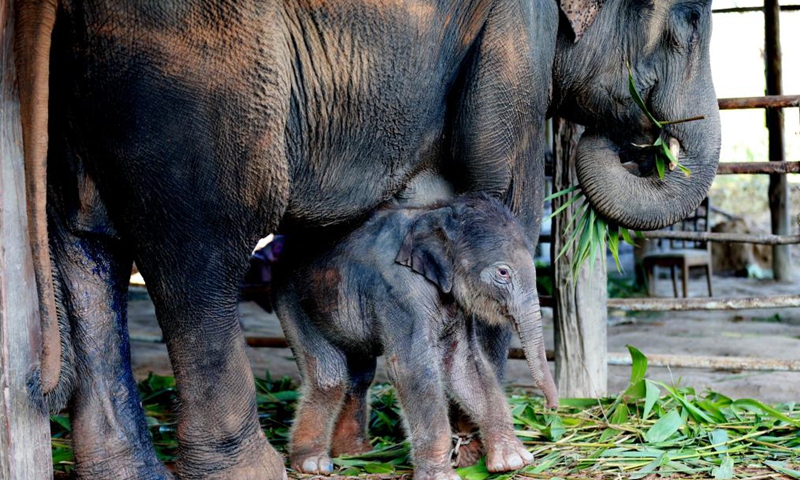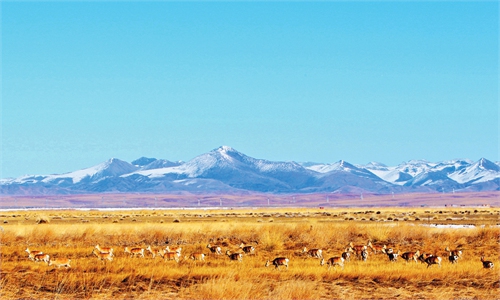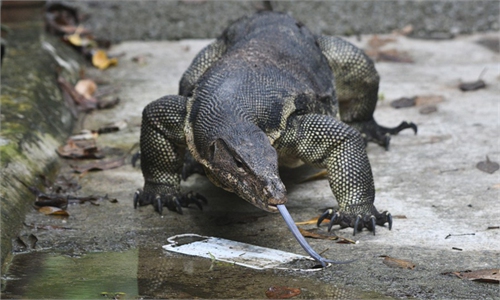New species reveal Myanmar’s biodiversity
Wildlife group FFI warns of threats to country’s natural environment

A newborn male elephant is seen at the Wingabaw Elephant Camp in Bago region, Myanmar on Jan. 23, 2022.Photo:Xinhua
At least 100 new species - from monkeys to mussels - were found in Myanmar in a decade, according to conservationists who said discoveries during the country's fleeting period of openness revealed "astonishing biodiversity."Beginning in 2010 with the identification of the Myanmar snub-nosed monkey, a small black primate known as the "sneezing monkey," researchers have made an "incredible sequence of discoveries," said International wildlife group Fauna and Flora International (FFI).
Over 10 years, during which Myanmar's generals eased their stranglehold on power, scientists from all over the world made a beeline to the country to explore rainforests, delve into cave systems, wade through rivers and pick their way across karst rock formations.
"Myanmar harbors biological riches that most countries can only dream of. Its remaining tracts of forest are home to some of the most spectacular wildlife in mainland Southeast Asia," FFI said in a statement.
But the organization raised fears over a "barrage of threats," including from illegal logging, hunting, agriculture, infrastructure development and quarrying.
FFI had tallied up the list of 100 new species in early 2021. With field operations already suspended because of the COVID-19 pandemic, FFI's Acting Country Manager Ngwe Lwin said the team was focusing on existing conservation programs with Myanmar partner Biodiversity and Nature Conservation Association.
He said a decade of openness had afforded researchers a rare chance to travel into remote areas of the country, some of which had previously been heavily restricted and conflict-torn.
But that does not mean the discoveries came easily.
In 2010, Ngwe Lwin and colleagues traveled to the forests of northern Kachin state near the border with China, looking for a new monkey species.
Local people had seen the monkeys and said they were easy to track, particularly in the rain because their upturned noses collect water causing them to sneeze. They told the conservation team to head through the de
nse forest to a spot near their village.
"Actually that was about one day's walk," Ngwe Lwin told AFP. "They said it's very easy, but for us, it was really hard."
After days of fruitless searching, they were presented with a single dead monkey that local hunters had accidentally captured in an iron trap meant for black bears.
"Unfortunately, the snub nosed monkey got trapped," Ngwe Lwin said, adding that a conservation area had now been set up there and local people were far less likely to use traps or target the critically endangered creatures.
FFI said it was crucial to involve local communities in preservation efforts, adding that many people in the country were dependent on natural resources for survival.
AFP



